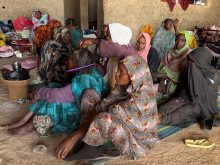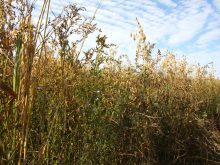Agriculture has a critical role to play in a global agreement to curb greenhouse gas emissions, the British Farm Ministry’s chief scientist said Nov. 2.
“The text has to recognize the critical role of agriculture in both mitigation and adaptation,” Robert Watson told Reuters at a food security conference at London-based think-tank Chatham House.
Negotiators from 175 nations are in Barcelona for two days of informal talks to iron out a new climate change deal ahead of a United Nations summit in Copenhagen this December.
Read Also

Trade uncertainty, tariffs weigh on Canadian beef sector as market access shifts
Manitoba’s beef cattle producers heard more about the growing uncertainty they face as U.S. tariffs, and shifting trade opportunities, reshape their market.
They are haggling over greenhouse gas reduction targets to 2020 and beyond and there are fears agriculture could be down-played in the negotiations.
To feed a world with nine billion people, world food production needs to rise by 70 per cent by 2050, according to the United Nations’ Food and Agriculture Organization.
Curbing emissions coming from that level of food production is vital. It is estimated that 30 per cent of global greenhouse gas emissions come from deforestation and agriculture.
“Even if you go to zero carbon in energy production and use you will still have a growing sector which is currently 30 per cent of global emissions,” Watson said.
Governments should also be looking at a number of ways to improve food security and cut emissions in the short term by using current technology.
Watson said increasing the use of biofuels, improving the understanding of second-and third-generation biofuels, trade reform, reducing waste and helping small-scale farmers in developing nations, as well as exploring the potential for genetically modified crops were all important.
Separately, Joachim von Braun, director general of the International Food Policy Research Institute, said right now, food security was under threat from protectionism, rather than climate change.
“The situation is very volatile,” he said on the fringes of the conference, adding price spikes over the next three to four years were likely, particularly in the rice and wheat markets.














